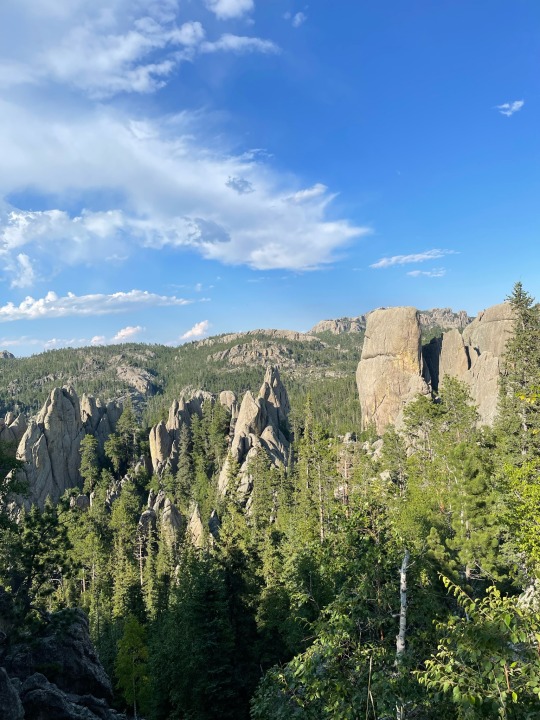#Black Hills Hikes
Text
Discover the Black Hills: Your Ultimate Hiking Guide to South Dakota's Hidden Gem
Embark on an unforgettable journey through the heart of South Dakota’s breathtaking Black Hills. As an outdoor enthusiast, you’ll be captivated by the region’s natural beauty, marked by towering peaks, lush forests, and an abundance of wildlife. Whether you’re a seasoned hiker or a beginner, this guide offers all the comprehensive information you need to plan your trek in this magnificent…

View On WordPress
#American Wilderness#Backpacking South Dakota#Black Hills#Black Hills Hikes#Black Hills Journey.#Black Hills Wildlife#hiking guide#Hiking South Dakota#hiking trails#Nature Trails#outdoor adventure#Outdoor Enthusiast#South Dakota Adventures#South Dakota Hiking#South Dakota Travel#wilderness exploration
0 notes
Text
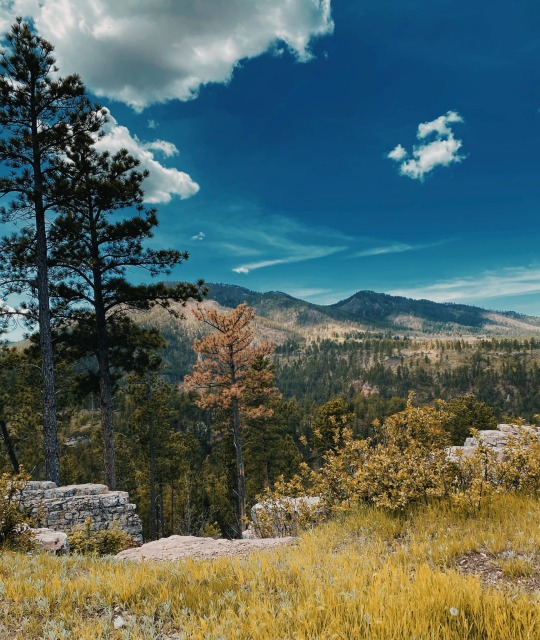
#country#nature#outdoors#hiking#travel#western#peace#treescape#explore#south dakota#custer state park#badlands#mountains#black hills
17 notes
·
View notes
Text

The Needles in Custer State Park, South Dakota
Explore:
#custer#custer state park#south dakota#black hills#the needles#travel#landscape#wandering#nature#wanderlust#nature photography#photography#photographers on tumblr#lensblr#hiking#landscape photography#wanderingjana
28 notes
·
View notes
Text
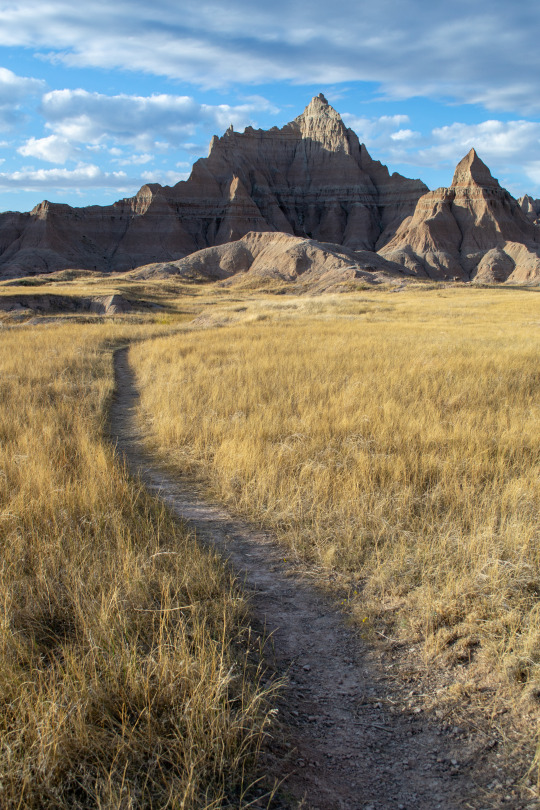
Your journey isn't over yet...
Photo: Badlands National Park, South Dakota
#south dakota#travel#tourism#adventure#explore#hiking#the great outdoors#badlands#badlands national park#sd#the mount rushmore state#black hills#midwest#the wild west#western usa#prairie#great plains#inspiration#hope#landscapes#god's creation#america the beautiful#national park service#us national parks#nps#road trip
43 notes
·
View notes
Photo

Black Elk Peak - South Dakota, May, 2021
#nostalgia#black elk#peak#oglala lakota#hill city#Wilderness#hike#fire tower#south dakota#lensblr#fog#foggy#moody#western gothic#western#midwest#aesthetic
176 notes
·
View notes
Text
June 14, 2023 Hike
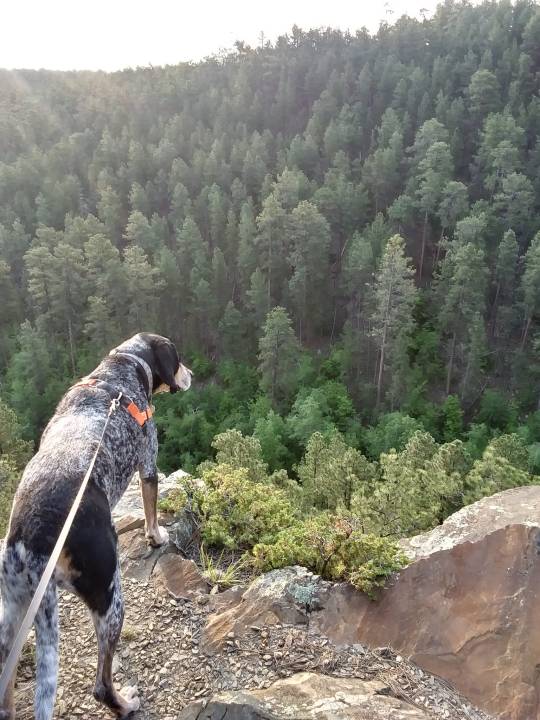
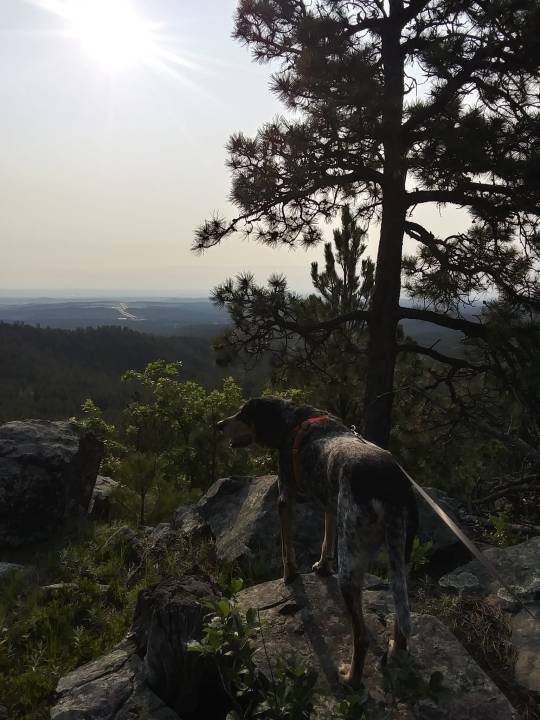

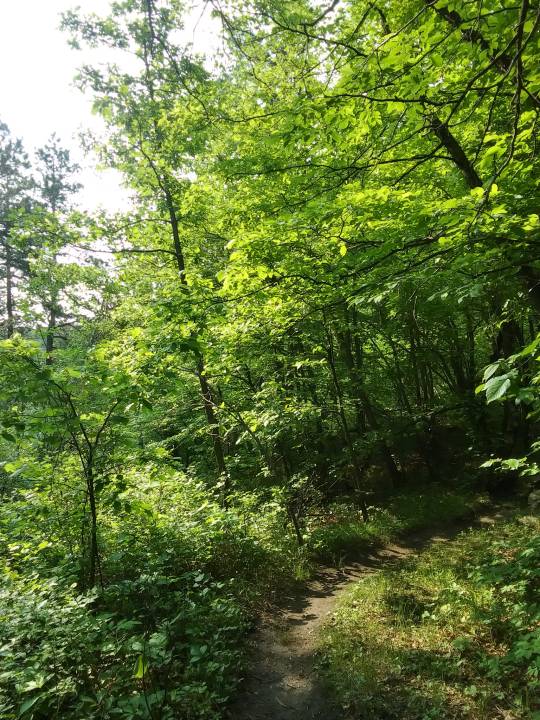

8 notes
·
View notes
Note
you're have boyfriend! >:) tell me abt him what's he like??
we’ve been together for 5 years, he’s a cna (just got into nursing school I’m vv proud of him 😌), plays guitar, collects vinyls, speaks spanish, likes riding his bike everywhere, and is very very sweet <3
#he’s a very laidback roll with the punches guy and is a good voice of reason#he bought us matching cherry socks to wear yesterday#and we went hiking last week and it was his first time and he loved it#and we stayed at a hotel overnight and cuddled on the huge bed and watched bobs burgers and king of the hill#it was very very nice#i’m love him#AND he has long black hair so best type of man right there
3 notes
·
View notes
Photo

Day 1477 - the Vale of Ewyas (in Welsh: Dyffryn Ewias) - a secluded and little travelled valley in the Black Mountains
#Vale of Ewyas#valley#vale#Dyffryn Ewias#Black Mountains#landscape#hills#mountains#hike#hiking#walk#walking#Offa's Dyke#Monmouthshire#Wales#Cymru#uk#1477
15 notes
·
View notes
Text
605 Speaks chats with Chris from Bigfoot South Dakota. Monday, February 19th 7pm CST / 6pm MST
Subscribe & hit the notifications bell to join us live on Youtube!
https://www.youtube.com/live/j32wrLTZ0Bc?si=x2ZXFfT48yF3qgxC
Like and Follow 605 Speaks on Facebook
https://fb.me/e/3iPEgs5DU
#SouthDakota #605Speaks
Tell me your stories.
#south dakota#605 speaks#sioux falls#bigfoot#cryptid#adventure#hiking#camping#meade county#meade#wild west#wildlife#black hills#badlands
0 notes
Text

This weight is far too much to own
by AllanOdyne
#photographers#photography#original#canon#artists on tumblr#allanodyne#canon 5d mark iii#hiking#germany#thüringen#forest#front bokeh#bw#sw#black and white photography#schwarzweiss#blanco y negro#hill#scene#beautiful
1 note
·
View note
Text
Problems like climate change, where solving them requires millions of people to collectively work at hundreds of different solutions at once, are black holes for internal peacefulness because they give you a type of frustration where you alternately become bitter towards yourself or everyone around you. "If only I could work harder to fix the problem!" makes you exhausted, so you must become angry at others: "If only they cared about the problem!"
People who are already working on fixing climate change need to convince more people to work on it. And a popular thing is to share writings that describe how doomed we all are if climate change is not fixed, how terrible everything will be because of climate change, and how quickly all the treasures of our world are being lost.
There is a particular understanding of human behavior that is being accepted here without thinking about it hard enough. Popular news media shows headlines with terrible prophecies, written that way in hopes of getting the attention of otherwise disinterested people, who will then be "motivated" to fix climate change.
The trouble is that fear is no good for motivating thoughtful, patient, steady commitment to solving a problem. Fear is made to cause an organism to avoid things that might harm it. It creates a brief and explosive pulse of action where the organism's energy pours out as it instinctively, thoughtlessly reacts to escape the danger as fast as possible.
It's silly to blame people for avoiding thinking about climate change. The point of an organism responding to stressors is to avoid them. Oftentimes, the only tool people are presented with is personal choices about what products to buy, which inevitably is horribly frustrating and stressful, since a person will frequently be coerced by their situation into buying a certain product, and even if they don't they see others doing it all the time.
Relentless exposure to imminent threats that cannot be escaped causes Trauma, which severely impacts a person's ability to be resilient to stressors.
I think there is definitely a type of trauma associated with being constantly aware of the destruction of the environment and feeling helpless to do anything about it, especially since we as humans have a deep need for contact with other living things and aspects of the natural world, such as trees, water, flowers, and animals—a need that is often totally denied and treated as merely a Want or a hobby meant only for certain people who enjoy particular activities, like Hiking or Gardening.
We need to expand our minds on how this disconnection can hurt a human being. Imagine if a child's need to be loved by their caregivers, a person's need to be loved by their friends and family, was treated as a desire for indulgence or luxury, or a certain use of free time!
Yes, yes, one person has a condition that makes it hard to walk up hills, another doesn't like the bright sunshine, another is allergic to the grass or fungal components of the outdoor world, but WE ARE PART OF THE FAMILY OF ALL LIFE ON EARTH and WE EXIST IN SYMBIOSIS WITH THE ENVIRONMENT WHICH TAKES CARE OF US. Who showed you what beauty was, who taught you to feel peace and relief inside you in the form of a caressing breeze and rustle of leaves, who gave you awe and wonder at seeing the stars or the mountains? Where does every delicious food come from but the soil teeming with creatures? Isn't the most perfectly sweet berry grown from a plant, nurtured by the soil and pollinated by the bugs? Don't you feel delight at seeing a springy carpet of moss, a little mushroom, or a tiny bird? Think of all that the trees give us. Whose breath do you breathe? Whose body frames your home?
The writings of Indigenous writers such as the book by Mary Siisip Genuisz I am reading right now show me that the other life forms are our family. They take care of us and provide for us, and they would miss us if our species disappeared. Isn't that a powerful, healing fact? I think everybody is so enthusiastic about the book Braiding Sweetgrass because it is a worldview that those of us coming from the dominant colonizer culture are straight up ravenous, starving to death for.
Maybe, I think to myself, humans can experience a kind of trauma from being deprived a relationship with their Earth, just as they would experience trauma from being deprived relationships with other humans.
I really believe that it hurts us to be surrounded by concrete instead of soil, to see a majestic tree cut down on a whim without any justice possible, to see wild animals mostly in the form of mangled corpses on the roadside, to have poison sprayed everywhere to kill the insects that life depends on, to hear traffic and lawn mowers and weed whackers instead of birds and flowing water.
We KNOW that this is physically bad for our health, the stifling, polluted, and stressful environments of a civilization that doesn't know the ways of the plants, but I think it's a kind of moral injury too, right? To see a beautiful field turned into a housing development of ugly, big, expensive houses—no thought given to the butterflies and sparrows and quail of the field? To see a big old tree cut down, a pond full of frogs obliterated and turned into a drainage ditch beside a gas station? They aren't just things, they are lives, and while expansion and profit and progress are "necessary," a nice old field of wildflowers or a pond full of frogs are a different kind of necessary. I remember feeling this as a child without words for it—the sheer cruelty of a world that is totally without reverence for the other creatures.
"They own the property, they can cut down the tree" "They bought the land, they can do what they want with it" <but it can also be wrong, and many people know this on some level, even though our culture doesn't provide us with the framework.
Fear could never give people the motivation to fix climate change. Constant fear of what will happen in the future forces a person to protect themselves from the relentless stress by shutting it out entirely or developing apathy.
A fear based argument for fixing climate change either causes a worldview of nature with no bond of kinship at all, based on the physical and practical dependence on Nature as a "resource," or forces people to experience their kinship with Nature only through grief.
Fear tells us that we want to live—it does not tell us WHY to live. If a person tries to live on fear alone, they will eventually find the desire to live burdensome and painful in itself. I see this emerging on a society wide scale in the USA, feeding on influences from the Christian evangelicalism that sees the Earth as something already sullied and worthless, to be thrown away like a dirty tissue, and on the looming monolith of nuclear winter that gave our parents recurring nightmares as children.
If you go to r/collapse on Reddit (don't do that) you will see a whole community of people who cope with the threat of climate change by fantasizing about it, imagining it as a collective punishment for all humanity and a cathartic release from the present painful situation.
We cannot learn to live without seeing the reason for living. We cannot save the Earth without loving it. We cannot heal nature without caring for it. In order to collectively take action against climate change, we must be moved by something other than fear—and that something is love. Not just love of the outdoors as an activity, but love of the Earth as something that loves us.
The dominant Western culture cannot borrow Indigenous land stewardship techniques as though they are just one climate resilience strategy, without being also willing to change its dreadfully impoverished way of viewing human relationships with Nature.
What right have we to think, "Huh, maybe those guys were on to something with the multi-level polyculture systems and controlled burns" while still thinking humans are nothing but a disease on the Earth, and that Earth would be happy to be rid of us? The sustainable ways of using the land practiced traditionally by cultures who have lived in relationship with their ecosystems for many generations work because humans can exist in mutualistic symbiosis with the life forms around them. We care for them. They care for us.
I know for a fact that plants seek relationships with us, and I was taught by them to see how interconnected everything really is, and how I was made to be a caretaker of my ecosystem. I was, a few years ago, just as I describe above. Too scared and pessimistic about the future of nature to bother loving it, and because of this, I could not realize my niche in the ecosystem. It felt for many years like I could do nothing—i believed in climate change, but I felt hopeless, so I put it out of my mind. But when I began to cultivate a love and reverence for the sad, scraggly, beaten-down fragments of Nature around me, everything changed. So much became possible.
I am still learning and exploring, trying to open my mind to ideas totally different than the ones I knew growing up, paying close attention to every plant and learning its ways. And it stuns me to think—some people write about climate change without this process.
The author of the book "The Uninhabitable Earth" (a scary book about how doomed the Earth is because of climate change) says in the beginning of the book that he is not very much of a nature lover. You fool, love is our most powerful evolutionary adaptation!
2K notes
·
View notes
Text

#country#nature#outdoors#hiking#travel#western#treescape#peace#south dakota#black hills#explore#experience#fall vibes#fall
0 notes
Text

1 note
·
View note
Text

So do not fear, for I am with you;
do not be dismayed, for I am your God.
I will strengthen you and help you;
I will uphold you with my righteous right hand
--Isaiah 41:10
Photo: Custer State Park, South Dakota
#sylvan lake#custer state park#south dakota#sd#black hills#midwest#hiking#the great outdoors#travel#tourism#adventure#explore#the dakotas#great plains#the mount rushmore state#fall#fall leaves#fall foliage#fall colors#autumn#fall vibes#autumn vibes#autumn foliage#autumn colors#autumn leaves#mountain lake#lake#god's word#bible verse#inspiration
1 note
·
View note
Text
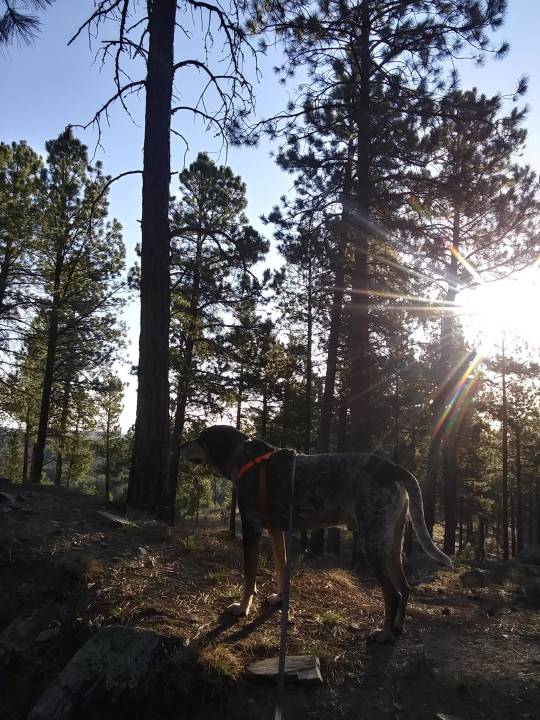
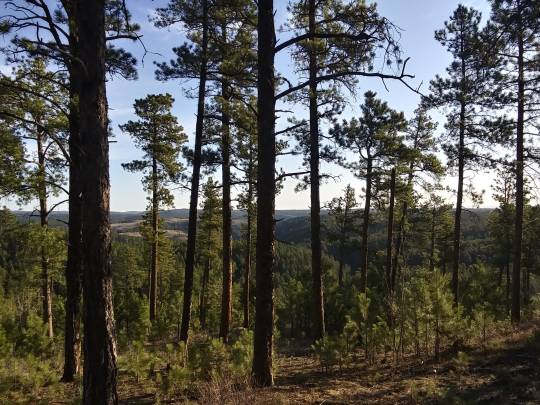

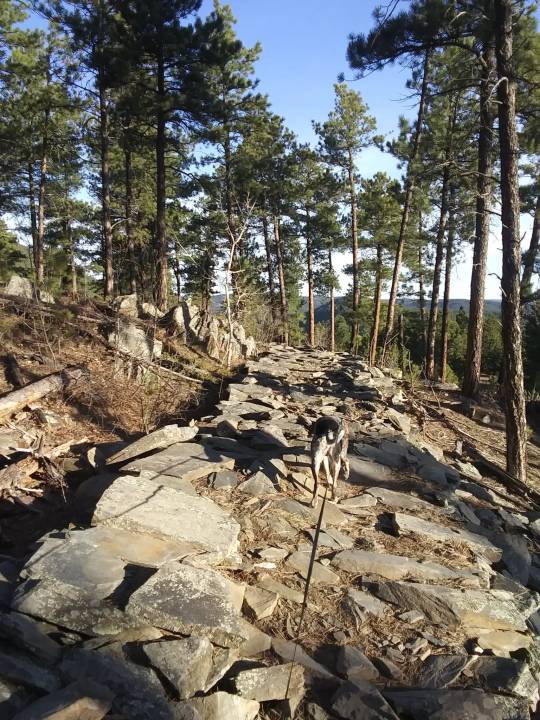
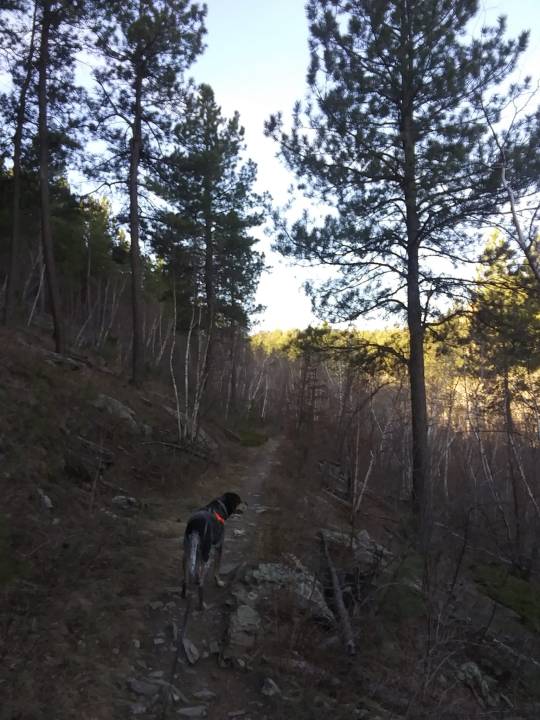

The world is quiet here.
― Lemony Snicket
#black hills national forest#coon hollow trail#flume trail#hiking#bluetick coonhound#jackson the adventure hound#storm mountain#first hike of the year#finding sanity
7 notes
·
View notes
